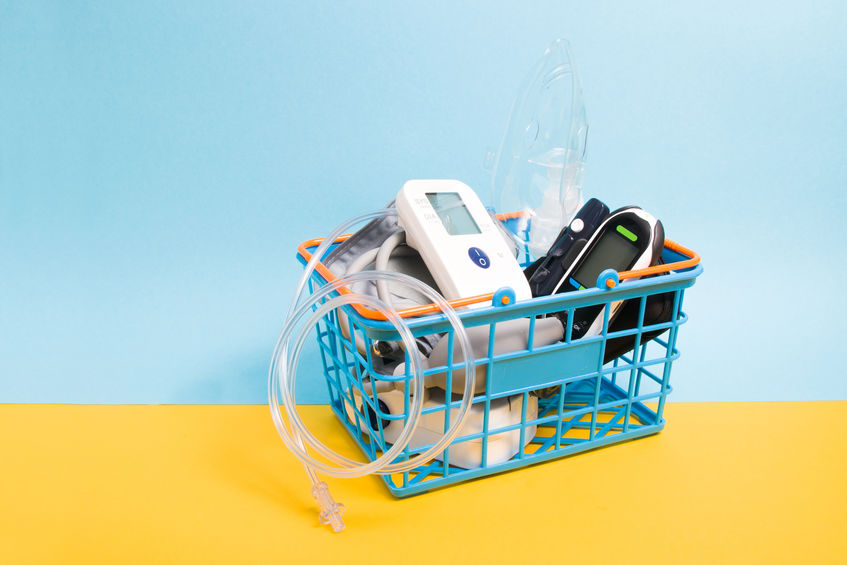
This is an ongoing series exploring what puts caregivers in their “sweet spots” when supporting a family member with special needs. In today’s post we’re exploring some challenges and opportunities for caregivers who are refreshed by getting organized. We’ll also look at what is different when being organized comes naturally compared to when it is a learned skill.
Some people learn to be well organized. Others are just born with the gift. In any case, having an effective organizer on the team of caregivers supporting your loved one and family is a valuable blessing.
There are numerous daily ways our caregiving household has benefited from serious organizational skills. I’ve included examples at the end of this article. You may laugh or cry at the absurd detail reflected in the list and photos. Or you may nod with respect. Many families raising children with disabilities will relate.
When I think of all the ways and times that organizational skills have been helpful to my own family in supporting Carly, my mind swirls with memories. My earliest recollection of bringing order to chaos involves feeding her during infancy. Because of Carly’s challenges with sucking, swallowing, reflux and being held (sensory issues), my husband, Larry, and I were forced to develop a feeding routine aimed at keeping her calm and thriving. This had to happen while also caring for two older children and maintaining the business we owned at the time. To say those days were hard is an understatement, but they were doable and tolerable, in large part, because we both had some natural abilities for creativity and organization. Without a doubt, we had the indwelling power of the Holy Spirit to keep us persevering!
Thankfully, this is an area some have called my “genius.” There’s no denying organizational abilities seem to ooze from my blood. But the truth is, there is no shortage of organizational blood around here. Others in my family are also gifted organizers.
One example is worth taking time to explain. It powerfully illustrates how our daughter, Alex’s, organizing efforts led to our most enjoyable family Thanksgiving vacation to date. Holiday travel has been emotionally difficult for us. We manage well through the logistics of packing for Carly’s needs. But we have problems managing grief, frustration and resentment as those vacation days unfold. While the crew is wanting to play games, do puzzles, go for walks, watch movies and enjoy a glass of wine, each member of our immediate family is ever mindful of Carly’s needs. There is no escape from managing her sleepless nights, next hydration break, toileting needs, special meal prep, medication schedule, stress behaviors and boredom. We have all experienced some emotional burdens from this during vacations and holidays.
A couple of weeks before one Thanksgiving road trip, Alex approached me about creating a Carly care schedule for our week together. At that point, Alex was an adult working in a career that involved the daily use of spreadsheets. She already has a keen mind for organization but her mastery of spreadsheets has also become impressive. She kindly pointed out that Carly’s cares follow a clear routine of shifts at home that descend into spontaneous ambiguity when we’re on the road. Our family’s ability for tag-teaming has some obvious advantages but it leaves all of us feeling like we never really get a break.
Alex’s proposal aimed at ensuring there were defined compartments of time when each of us could anticipate being on and off “duty.” We agreed this would be a casual schedule adhered to in a relaxed way. For example, we didn’t define specific start and stop times for shifts. Instead, we simply identified who would have “lunch time on Tuesday” and who would take over for “afternoon” or “early afternoon” once lunch was finished.
It all started with identifying each person’s preferred shifts and breaks. She offered to create a spreadsheet and post it on the refrigerator for the duration of our visit. She also reminded me that Carly’s aunt and cousin have offered to help in the past but just weren’t sure what to do or how to do it. She said, “mom, we can just give them really short times of responsibility and a small list of ideas about what they can do with Carly when it’s their turn to be in charge.” I wish I could say I warmed to the idea immediately. It took a couple of days for me to envision how it could work but I got there.
When all was said and done, the rewards of Alex’s spreadsheet were too many to count!
WATCH: Family Systems and Holiday Gatherings
It must be said, Larry and I are exceedingly privileged and thankful to have adult daughters willing to partner with us in caregiving when we’re all together. I assure you, we don’t take it for granted. And I wasn’t always sure it would be that way. The countless reasons why grown siblings of someone with disabilities may want to avoid coming home for holidays, or at all, are material for plenty of other blogs.
WATCH: Parenting Special Siblings
One things is certain, being organized is a great asset in caring for our loved ones and in cultivating a higher quality of life for all of us.
Learned Behavior Is Not the Same As Natural Ability
As with so many skills, there is an important difference between learned behavior and natural ability. Those people who have the inborn capacity to be organized will not just be good at it, they will have significant need to employ the gift. They may even become more energized by activities involving putting things in order. If they are not given freedom and opportunity to bring order to situations and spaces, these folks will actually grow weary. They will tend to experience stress and become anxious. A natural-born organizer will shine in an environment where they have freedom to try their ideas. Most of their motivation will come from within.
On the other hand, someone with learned organization skills will be more inclined to see an organization project as a task to check off of a list or even a chore. They may have a heart to serve but not feel particularly motivated about something like problem solving or decluttering. They may appreciate a peaceful space and have the capability to tidy things up themselves but, given the chance to have someone else do the tiding for them, they would jump on it. When putting things in order is strictly a skill of necessity, a person can even become exhausted or overwhelmed, particularly if the pressures to organize remain prolonged, complex or unappreciated. To stay inspired, these caregivers will need steady doses of genuine encouragement and appreciation. Seeing rewards for their efforts will help keep them from giving up.
Sometimes, even the best of organizers will appear to procrastinate. The fact is, they may be taking extra time because they’re trying to figure out an ideal solution. The fear of implementing an inferior or imperfect solution may delay some organizers from tackling a project that feels complicated. A fear of appearing incompetent can be also debilitating.
It will be beneficial to understand specifically what may be hindering a person from employing their organizing skills. An intimidating project may need to be broken down into several smaller projects. It can help to address the easiest or most familiar aspects first. A highly relational person will be more motivated to tackle an organizing job if it is paired with something social. Fold laundry while chatting on the phone or purge a closet with a partner nearby to help in making decisions. Re-arrange the toys or room furnishings while listening to a podcast. Positive feedback will keep many project managers spurred on with confidence and a sense of value.
RELATED: Tips for Caregivers: Feeling Valued and Competent
The truth is, being in control can be a prominent motivator for organizing activities. Plenty of families appreciate having someone in their household who loves to keep the house tidy. Having a passion to keep the home orderly can be such a blessing to a family, most of the time. But it can be an obsessive need, for some people and at some times. In those cases, the organizer’s behavior can be problematic for the individual or family members.
I personally relate to this. There have been times when tidying things has created a sort of “illusion of control” for me when the rest of my life feels quite chaotic. At times, I have even used organizing to avoid doing other very important things, including stepping up to my responsibilities for Carly’s cares. It is important for me stay on guard for making an orderly home my idol. I may go to organizing things for comfort and quit seeking the the Holy Spirit as my primary Source of peace. In my strengths, the Holy Spirit guides and prompts my activities and priorities. In my weakness, the fixation with decluttering starts to control me.
Every caregiving household will benefit from the contributions of an organizer. If the knack for organizing isn’t particularly strong in your family, seek out a friend, volunteer from church or paid consultant to visit with periodically. A monthly, quarterly or annual consultation with a skilled organizer can breathe fresh life and encouragement into a caregiving situation.
Here’s another thought. If there are young children in your home, keep your eye out for hints of potential. Young siblings eager to help, be creative or solve problems may be little administrators in-the-making. Age shouldn’t limit anyone from sharing ideas about how to serve the family system. You may have a ripe opportunity to cultivate things like self-esteem, problem solving skills, confidence to experiment with ideas and hearts to serve.
TAP YOUR STRENGTHS AS AN ORGANIZER ON THE CAREGIVING TEAM
If being organized energizes you…
- Seek responsibilities on the caregiving team that optimize your talent and capacity for things like medication management, housekeeping, record filing systems, rotating or re-sorting toys, maintaining therapeutic equipment, periodic closet and pantry purging, etc.
- Facilitate discussions about routines and schedules that will keep everyone safe, efficient and well cared for
- Help others find satisfying roles on the caregiving team (e.g., facilitate family/team meetings exploring the interests and strengths of each person)
- Find a peaceful place in your home to be away from the pressures of the day and organize your thoughts (in cooperation with the needs of others)
- Look for new opportunities for delegation
- Express compassion toward those who aren’t as attentive to details as you are
- Learn to seek Jesus in your priorities and strategies
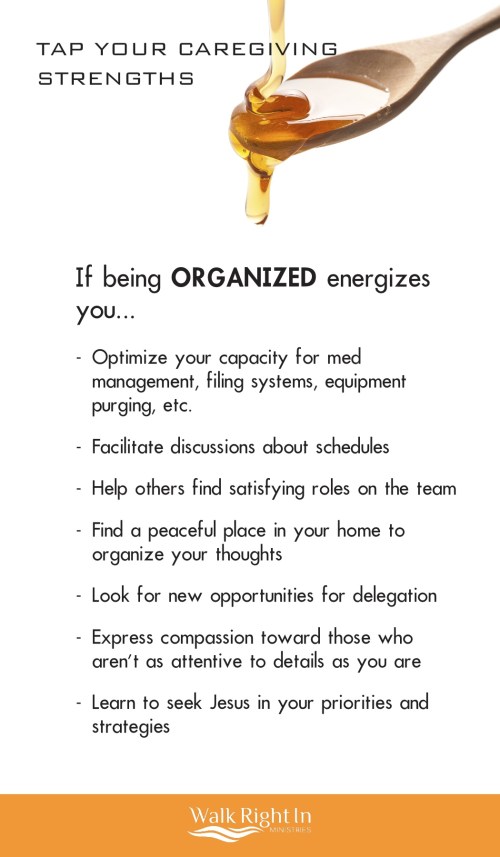
The Bible offers an abundance of help and encouragement for the person who thirsts for an organized world:
1 Corinthians 3:11
For no one can lay any foundation other than the one we already have—Jesus Christ.
Ephesians 4:16
He makes the whole body fit together perfectly. As each part does its own special work, it helps the other parts grow, so that the whole body is healthy and growing and full of love.
John 14:27
“I am leaving you with a gift—peace of mind and heart. And the peace I give is a gift the world cannot give. So don’t be troubled or afraid.
James 1:2-4
Dear brothers and sisters, when troubles of any kind come your way, consider it an opportunity for great joy. For you know that when your faith is tested, your endurance has a chance to grow. So let it grow, for when your endurance is fully developed, you will be perfect and complete, needing nothing.
Psalm 118:5
In my distress I prayed to the Lord, and the Lord answered me and set me free.
Lord Jesus, you have given me a vision for order where there is disorder. The needs feel overwhelming at times and I don’t always feel personally equipped to meet them. I ask that You strengthen me where I am weak. Reveal Your strength in my weakness too. Raise up others around me and my loved ones to help too. Help my family to see ways where we can give organizational skills room to blossom. Use these gifts and abilities in our midst for godly purposes and to enrich the quality of life and relationships in our family. Amen
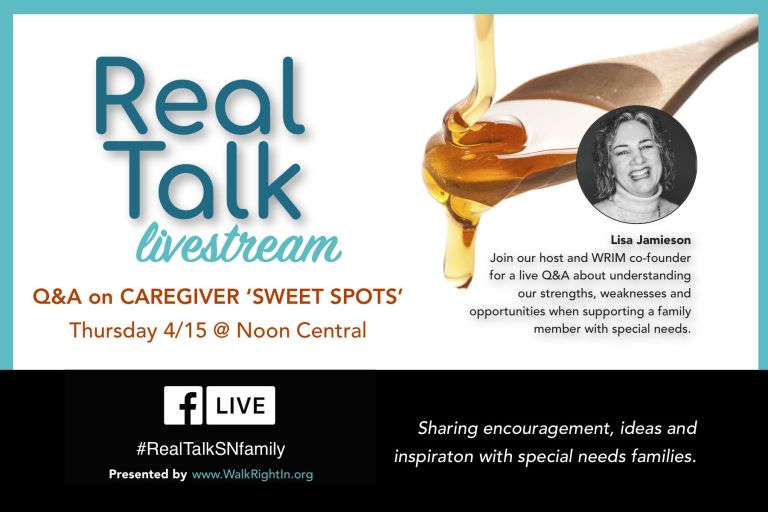
Areas Requiring Organization in My Caregiving Home
- Medications — Carly’s numerous medications and supplements involve medication organizer sleeves (pictured), a drawer in the fridge, a bread box on the kitchen counter, a kitchen drawer, a plastic box and first aid kit for traveling, a zippered cosmetic bag in her backpack, a special pouch in my own purse and a cupboard near her changing table.
- Toys — We have systems for storing, cleaning, rotating. We have a toy basket in the car and special collection specifically for road trips.
- Communication & Teaching Tools — Carly uses laminated photos to make activity choices and keep track of chores. Carly’s visual calendar has been a sanity-saver during the Covid pandemic!
- Routines & Records — The number of checklists in our home is almost laughable. Lists line the inside of cupboard doors, hang on walls and pop up on our smart phones. We have lists of various sorts in the kitchen and primary bathroom: daily sleep log, seizure log, bowel tracking, medication changes, carpet/upholstery cleaning steps, outing idea list, behavior monitoring tool, and troubleshooting ideas for problematic behaviors. A 3-ring binder for all caregiving staff and family includes brief sections on hot topics such as Angelman Syndrome, her Health & Safety Plan, emergency contacts and seizure response information as well as time sheets, mileage forms and worker rights information for support staff.
- Smartphone Photo Album — Several items are tagged in an album on each caregiver’s phone (e.g., family contact phone numbers, guardianship papers, current medication list, Carly’s state ID card, insurance cards, immunization record and Covid-19 vaccination card. I also keep a couple of videos there showing Carly’s current levels of function. These have been very handy during hospitalizations when I need to show medical staff what they can expect to see when Carly has recovered.
- iCloud Folders — I’ve started keeping digital copies of important documents stored in a single place for Carly.
- Incontinence Supplies — Carly’s bedroom and every bathroom in the house includes diapers (two kinds), wipes, disposable mattress pads, and more. We also keep emergency supplies in the car and her backpack.
- Future Planning — This is an area that can trigger fear and stress, particularly for those who need to feel organized. In our household, there has been an ebb and flow about future planning. We’ve created and updated our wills at least twice in almost three decades of raising children. As the seasons of life unfold, Carly’s functionality matures and our financial situation evolves, preparing for Carly’s future and ours has also shifted and changed. It helps us to stay in touch with our attorney, check in with a financial planner and consult with other advisors along the way. We also work at maintaining open communication in our family about Carly’s future. Those conversations cover a gamut of subjects ranging from guardianship, social security and disability benefits to medical insurance and housing options. We have some dreams and plans but we tend to hold them loosely.
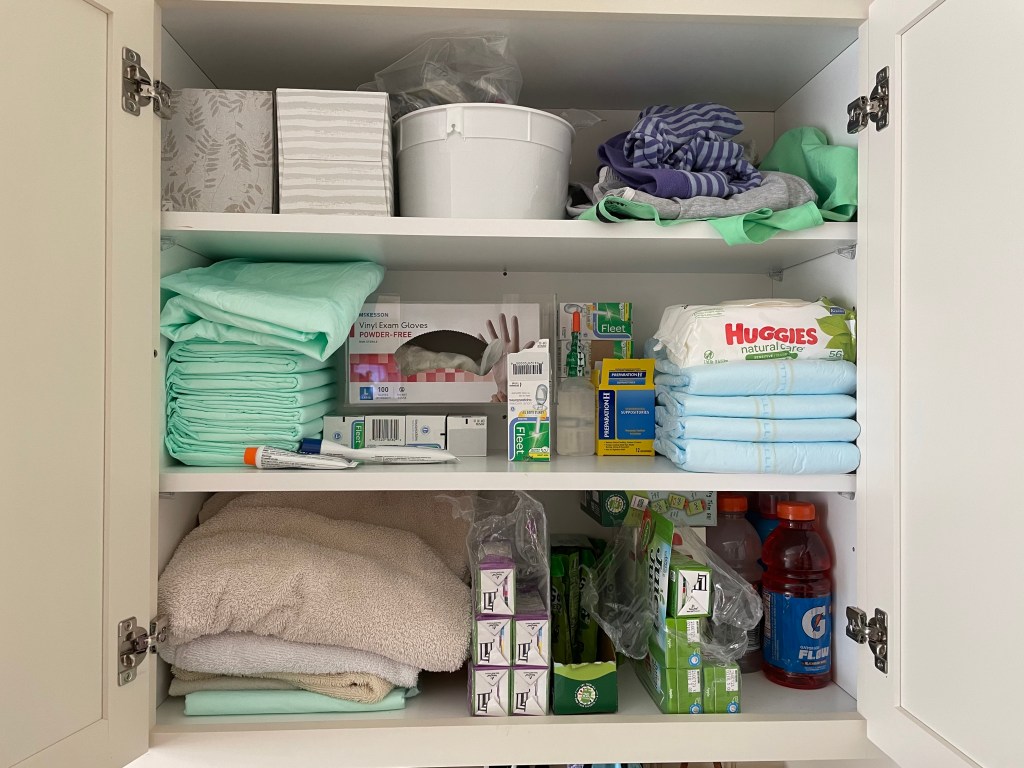
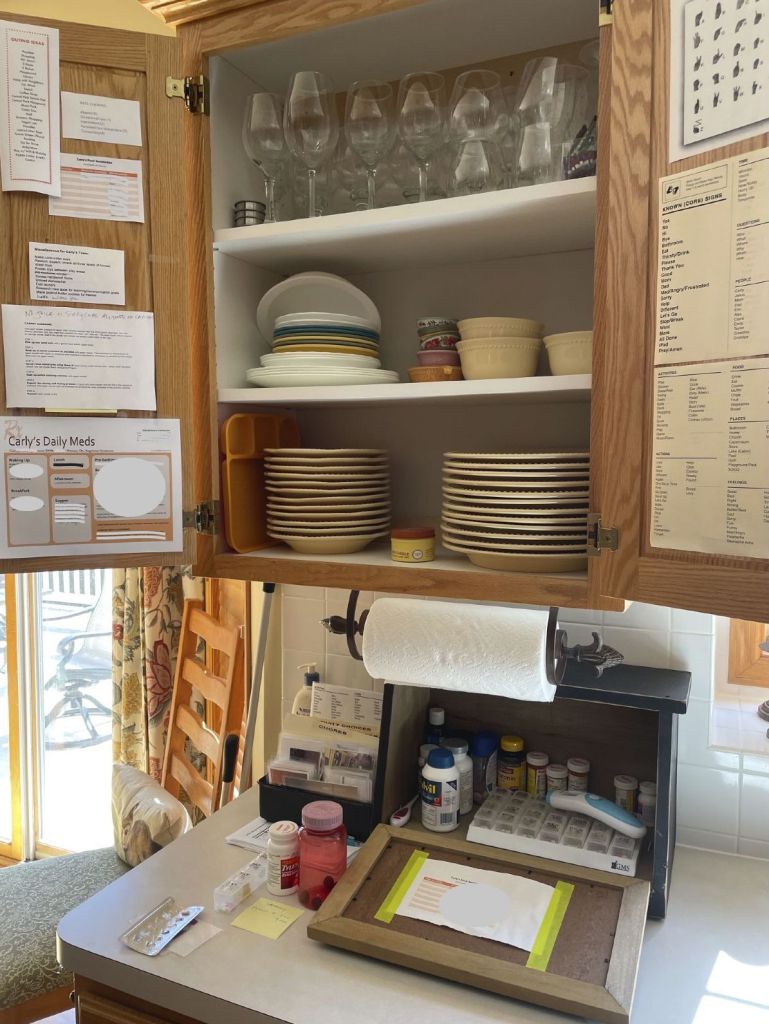
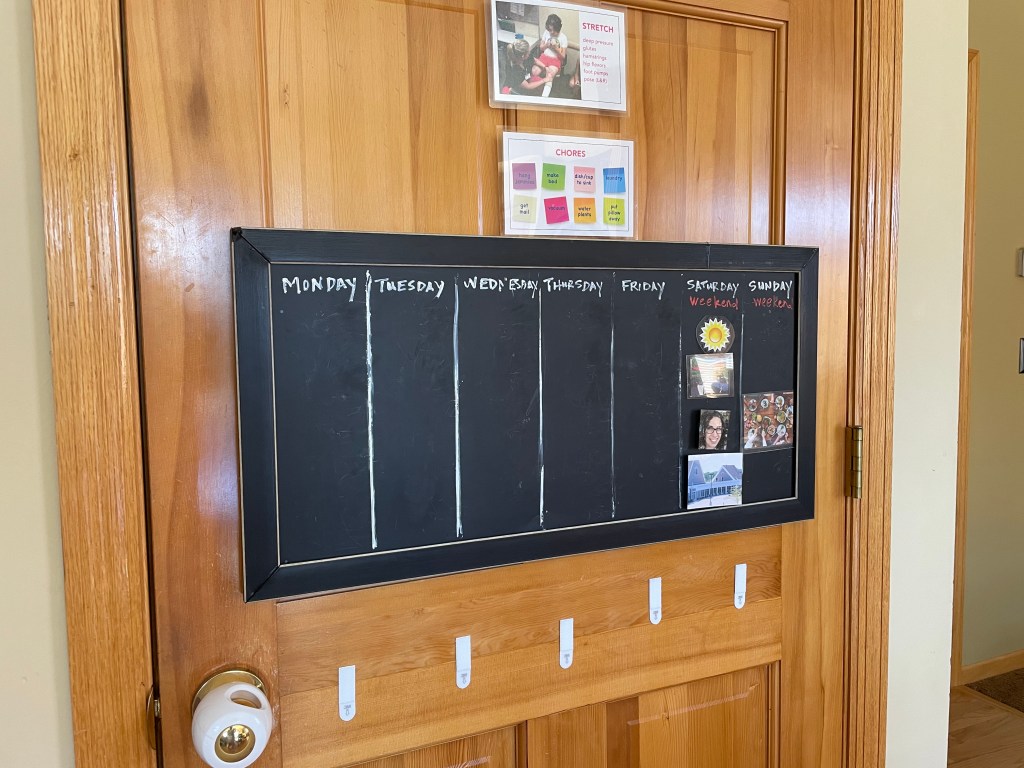
Tell us in the comments what or who helps you and your family stay organized!

Lisa Jamieson is a caregiver consultant, pastoral counsellor and author of popular books and Bible studies including Finding Glory in the Thorns and Jesus, Let’s Talk. Lisa and her husband, Larry, live in Minnesota with the youngest of their three grown daughters, Carly, who has Angelman Syndrome. Together, the Jamiesons founded Walk Right In Ministries in 2008, a non-profit organization building faith and community with special needs families.


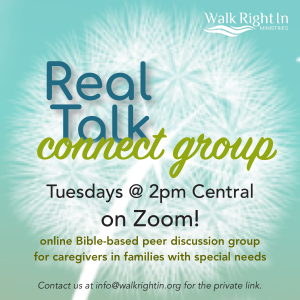

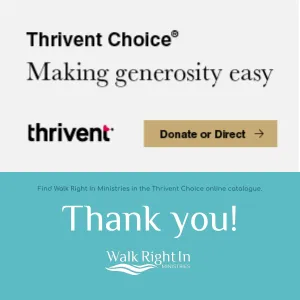
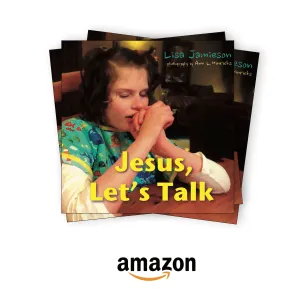

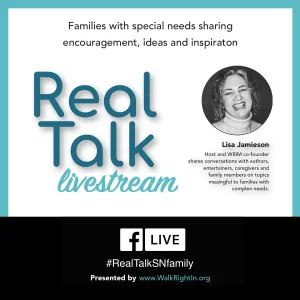
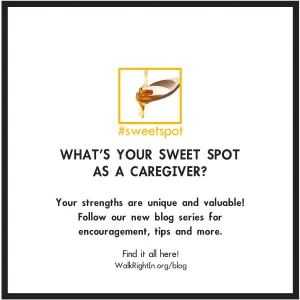

0 Comments